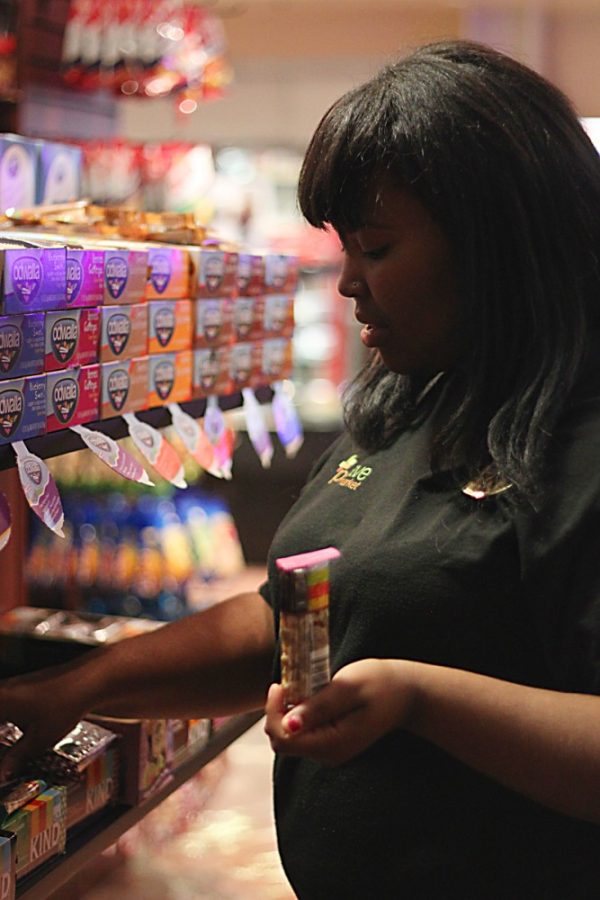When Hope Sullivan accidentally eats anything containing gluten, “waves of pain” ripple inside her stomach.
Unable to do anything but lie on the floor for two hours, she said, ”It’s akin to a midget in my stomach trying to scratch its way out with Wolverine claws.” Since she was diagnosed with celiac disease in the second grade, Sullivan, now a law student, has learned over the years what she can and cannot eat.
Some remain unaware that gluten, the protein found in most grains, can cause irritation and tearing of the small intestine lining and that people with celiac disease cannot eat it. Celiac disease can also fry the inside lining of the intestine, which leads to leakage of acids and ends up causing an auto immune problem throughout the entire body, said Gale Welter, head coordinator for UA Campus Health Service Nutrition Services. But being “gluten-free” often also gets lumped in with veganism or vegetarianism, despite the fact that meat can still be a part of a gluten-free diet.
Today, 1 in 133 people has celiac disease, according to National Digestive Diseases Information Clearinghouse.
Sullivan is part of a trend — more and more college students are being diagnosed with celiac disease or gluten intolerance.
Welter said the symptoms of celiac disease make it difficult to test for. In the past, diagnosis involved inaccurate blood work, endoscopies and biopsies. Instead of waiting for their stomach systems to erode over time, today sufferers get answers quickly.
“The problem with treatment is patient compliance,” Welter said. The only treatment for celiac disease is a gluten-free diet.
Jenna Oertle, a senior majoring in management and communications, is not gluten-intolerant, but that hasn’t stopped her from creating the UA’s first gluten-free club on campus. Seeing the struggles of her gluten-intolerant sister, Oertle realized the immediate need for more food options on campus.
She felt it was her job to take the initiative, starting with setting up a table on the UA Mall the first week of school.
“Even if I get only one new product in the (Student Union Memorial Center), that’s still change,” Oertle said. “Nothing in history came from one person or one initiation. It’s all about small changes that follow each other and become a movement.”
Oertle is teaming up with Welter on who and where to target next and how to proceed from just paper flyers, emails and a Facebook group. She said she hopes to provide students with information for local restaurants and UA sorority and fraternity houses.
Jon Levengood, manager for retail and dining service at Arizona Student Unions for more than 20 years, has noticed the changes of food preferences toward gluten-free options.
With a growing number of people becoming gluten-free due to celiac disease, gluten intolerance and irritable bowel syndrome, Levengood works to improve the student union’s food and variety of choices.
The student union’s food services are switching from general food suppliers like Sysco to Udi’s, a gluten-free food supplier, and Tucson food co-ops, Levengood said.
A Health Food Options brochure, which can be found at every restaurant, is up to date with the vegan, vegetarian, low-carb and even gluten-free options, he added.
Included in the brochure is IQ Fresh, an eatery where you can ask for a gluten-free wrap. Three Cheeses and a Noodle has gone through a taste-testing panel to offer students the best gluten-free pasta. And after realizing On Deck Deli’s gluten-free bread was hardly satisfactory, the student union took a suggestion from a student’s parent and switched to Udi’s better quality gluten-free bread.
Once diagnosed with irritable bowel syndrome, Brittany Jesson, a freshman studying nutritional sciences, was restricted to a diet free of dairy, gluten, whey and soy.
Jesson said it took time to get used to it. But after minor slip-ups like eating frozen yogurt, leading to her stomach inflating past her chest, she realized the importance of being conscious of what she puts into her body.
But aiding students that must remain gluten-free comes to the student unions at a price.
Though gluten-free wraps, Udi’s bread or the pasta may cost the student union more, Levengood said the student union absorbs any extra cost so students don’t have to pay more for their gluten-free food.
“We are willing to go the extra mile to accommodate people’s needs,” he said.
Sullivan said she sees local efforts trying to help people who stay gluten-free. In the end, she said, “There is always something to eat.”









